Sid the Sexist, Saudis and one win in 70 years
Newcastle United has a more colourful backdrop than almost any other English football club and breaking the trophy drought only promises more of the same. It will be some ride.
Newcastle Brown Ale in hand, Sid the Sexist painted an image of Newcastle that endured for almost as long as the trophy drought
Growing up in the north-east of England in the 1970s and ‘80s, there was almost nothing to bring out the broadest of smiles than another, and invariably colossal, Newcastle United FC failure.
Warming the heart doesn’t even come close to articulating the deep, aching bellows that would come about with another Geordie (a Newcastle native) mishap, underpinned always by a sea of delusion and, better still, one they never ever saw coming.
Until last Sunday when they beat Liverpool FC in the Carabao Cup final, Newcastle Utd had not won a domestic trophy since 1955. (They did take home the Fairs Cup in 1969 but you can very easily wind up a Geordie by calmly insisting this doesn’t count, a short-lasting competition so contrived and vacuously weighted that even Fifa boss Gianno Infantino couldn’t get away with it.)
Fittingly, it was the only Geordie in the team (Dan Burn centre) who opened the scoring against Liverpool last Sunday
Seven decades is a quite surreal spell without winning and while wider football fans have long become accustomed to the trophy drought never being broken, in Newcastle they have believed it would happen almost every year since the Jackie Milburn starred side last took home a cup.
For a club with four league titles - albeit back in the days of the horse and cart - and six FA Cups in its locker, such ongoing infertility should be cause for mass self critique and repair. But Newcastle, the city and club, can be the most peculiar of places.
Tucked away in the far right hand corner of England, it is a hard, coastal haunt succoured by an independent mindset that has led over time to isolation and a tendency to look inward both for inspiration and protection.
Poorly off and ignored for much of the last century it has forged a path out of step with much of England. It is different. A Geordie with a particularly strong dialect - or drunk - is nigh on impossible to understand and if there was one choice only for a League of Gentlemen style English city, it would be Newcastle every time.
It has always been like this.
The Strawberry pub. Not an obvious name for a football gathering point but it remains the go to place for Geordies pre match
There’s a pub called The Strawberry near the south-east corner of St James Park, the Newcastle home ground. It’s been done up now but for years, and like its immediate surrounds, was something of a dump.
The old interior was a snapshot of many decades of the north-east, originality and forward movement not so much discouraged but not even thought of. Plain wooden tables, the one beer choice for all, and on match days, a wholesale black and white mass of anticipation and resignation. Five or six pints in the saloon bar with its cloying long hanging fug would generally knock a good couple of months off the drinker’s allotted life span.
It was in The Strawberry, pre match in the early 1980s, that Viz comic founder Chris Donald and his mates would hoick around the new edition of the ground breaking and scurrilous magazine, then little more than few pages of hand drawn bilge.
Viz though was brilliant and took off in a way the football team never managed.
Central to its success were the characters who popped up every issue, based on local friends and associates and observations and which resonated strongly with the public whether they’d ever been to Newcastle or not.
Viz magazine in its full early glory. Brilliant
Sid the Sexist, the Fat Slags and Biffa Bacon were not just iconic and genuinely funny but captured and speared perfectly much of the Geordie population out and about every Friday or Saturday night. The characters were telling it how it was, a vibrant and fascinating culture not always in keeping with the rest of the country. The people the ‘80s had left behind and which pretty much summed up the entire north-east at the time.
Syd is always seen with his three best mates, Baz, Bob and Joe, perfect tropes all. Syd has medium length black curly hair that is neither smart nor at the hippy end. His pals have more exaggerated haircuts and stand always, backs to the bar, in a voyeuristic and borderline dopey manner clutching a can of Newcastle Brown Ale or Red Stripe. The depictions are little short of genius and catch that air of insularity that regularly enveloped Tyneside.
How these creations would sound in real life was how they appeared on the page, every syllable elongated or elided to capture the Geordie accent and thinking to a tee.
It’s a lasting shame the Viz gallery rarely included a rabid Newcastle United fan. The material, mythical and real, is boundless.
Supermac would have been better off zipping his mouth pre 1974 FA Cup final than afterwards
Supermac, for starters, was a godsend. An outstanding centre forward, Malcolm MacDonald had a mouth as wide as the river Tyne which divides the city from its nearer and more impoverished neighbour Gateshead. Promising, before the 1974 FA Cup final, to tear opponents Liverpool apart, the supporters parroted his word as gospel but Supermac fell flat on the day. The memory is awkward even now.
They lost again at Wembley two years later and then came the slide, six seasons in the second tier from 1978 and a loss of crowds, the 16,000 average in the 1980/81 season, a calamity repeated 10 years on.
In between though came Kevin Keegan. Summer 1982 was a blow to anyone looking to laugh at the Geordies, Keegan only two years previously the European Footballer of the Year, joining a side languishing in the second tier.
But Keegan - by some distance the standout English player of the 1970s - soon fixed that. His home debut was a 36,000 sell out (the old St James Park was forever falling apart and so rarely able to host huge crowds) as everyone knew it would be. Kev scored of course, the only goal. He lasted two years before retiring but got them promoted in 1984 and left the pitch after his last match in a helicopter.
Keegan departs St James by helicopter after his last game in 1984. Flashy but fair enough
An import from South Yorkshire and one of the game’s good guys, he remains their biggest star although local prejudice to their own would likely plump for Alan Shearer or Gazza or Milburn every time.
When little Kev returned in 1992 as manager, he was a revelation once more, his mid ‘90s team almost certainly the best the city has ever had despite its league titles in the early days of organised football.
The 1995/96 season was a classic, the Magpies (the club nickname) 12 points clear early in the new year before throwing it all away in the style of Greg Norman hunted down by the relentless and self certain Nick Faldo at the US Masters golf that year.
Newcastle had a glorious team with David Ginola, Phillipe Albert and Les Ferdinard imperious but when they needed help to get across the line, brought in the ultra talented but ultra unreliable Tino Asprilla, a man who arrived on Tyneside wrapped in a fur cloak of the sort Her Majesty might throw on for state occasions.
No-one had a coat like Tino Asprilla’s in Newcastle in 1996
The chasing Manchester United by contrast had Eric Cantona as the fulcrum. In hindsight it’s a wonder why we ever thought it might be a contest.
The Tyneside insularity arguably found its apex with the arrival of John Hall as owner and chairman as the ‘90s dawned. Financially the club was stuffed and Hall, a local surveyor turned developer done well, splashed the cash (loans only it later transpired) and built up the concept of the Geordie nation, the club and regional identity entwined as one.
Shamelessly the supporters lapped it up and, in a forelock tugging exercise to make everyone outside Tyneside cringe for a good decade, referred to Hall forever and a day as Sir John Hall (his official title) but did so in a manner than implied that were getting the gentry on their side and this somehow elevated and proceeded them.
It didn’t of course, Hall leaving with his pockets bulging after a stock market float and handing over the reins to the vile Freddy Hall, local also and a man caught offside by the News of the World’s fake sheik mocking (not unreasonably maybe) his club's supporters for spending extortionate amounts of money on merchandise. He also managed to call female supporters ‘dogs’ while being found to hang about in brothels and arguably worst of all referred to star striker Alan Shearer as ‘Mary Poppins’.
Incredulously, the bigger squirm came a few years later with new owner Mike Ashley, a London based billionaire not obviously keen on spending his own money on his team. He was keen to make a buck though and renamed St James Park as the Sports Direct Arena, Sports Direct being an Ashley owned enterprise. Worse still he brought in the payday loan company wonga.com as the shirt sponsor, this in an area of low wages and higher than average unemployment. But Ashley clearly saw the gap.
It was no way to treat any club but still the supporters came, protest not ceding to staying away in much the same way that Manchester United fans can be up in arms against their owners the Glazers, yet still shell out come match day.
Stupid is as stupid does as Forrest Gump would say. The 2021 Saudi takeover
And finally the current owners, the Saudis, the misogynistic, homophobic, ‘anti everything western when it suits them’ state, who within hours of taking over had thousands of Geordies gloating outside St James as being the richest club in the world, many dressed in Arab regalia. The outsider meets the outsider maybe.
Shearer was at Wembley on Sunday as were Ant and Dec, the Newcastle born TV stars who habitually turn out for the big matches and are all genuine fans never wavering in their support of the team. There are thousands more Geordies like them, many bare chested and voluble (and why not) but many unassuming and loyal in their support of the team. Sunday’s win, for them, feels very welcome.
It is the ongoing Geordie Nation gloat though that Newcastle is one of the biggest clubs in the world that has made it a club to be sniggered at.
Only months after Keegan left as a player, Newcastle bought in a centre-forward called Billy Whitehurst. Big and ugly, he managed seven goals in 37 games, a scoring ratio in tandem with his previous clubs which begets the question why on earth he was ever wanted. Whitehurst - the W in his surname was swiftly changed to S by Newcastle fans as well as the opposition - eventually ended up working on a building site and was convicted of benefit fraud.
Big clubs should be above players like Whitehurst but he was not out of place at the time. This is the washed over history - and sense of perspective - that in part explains the 70 year drought.
So, a big club then? One trophy in seven decades says emphatically not but it now has the resources it never had before. Pre Manchester City new wealth, Newcastle had more trophies in the cabinet than the sky blues.
The wait for the next pot will be nowhere near as long but this being Newcastle, it will almost certainly not be straightforward.
It is too, what makes sport.
ENDS


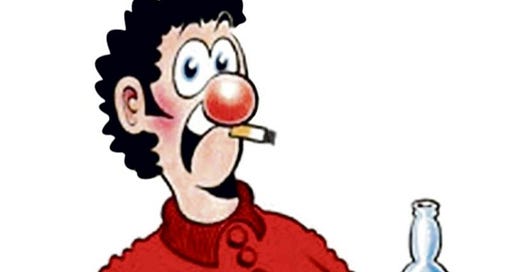



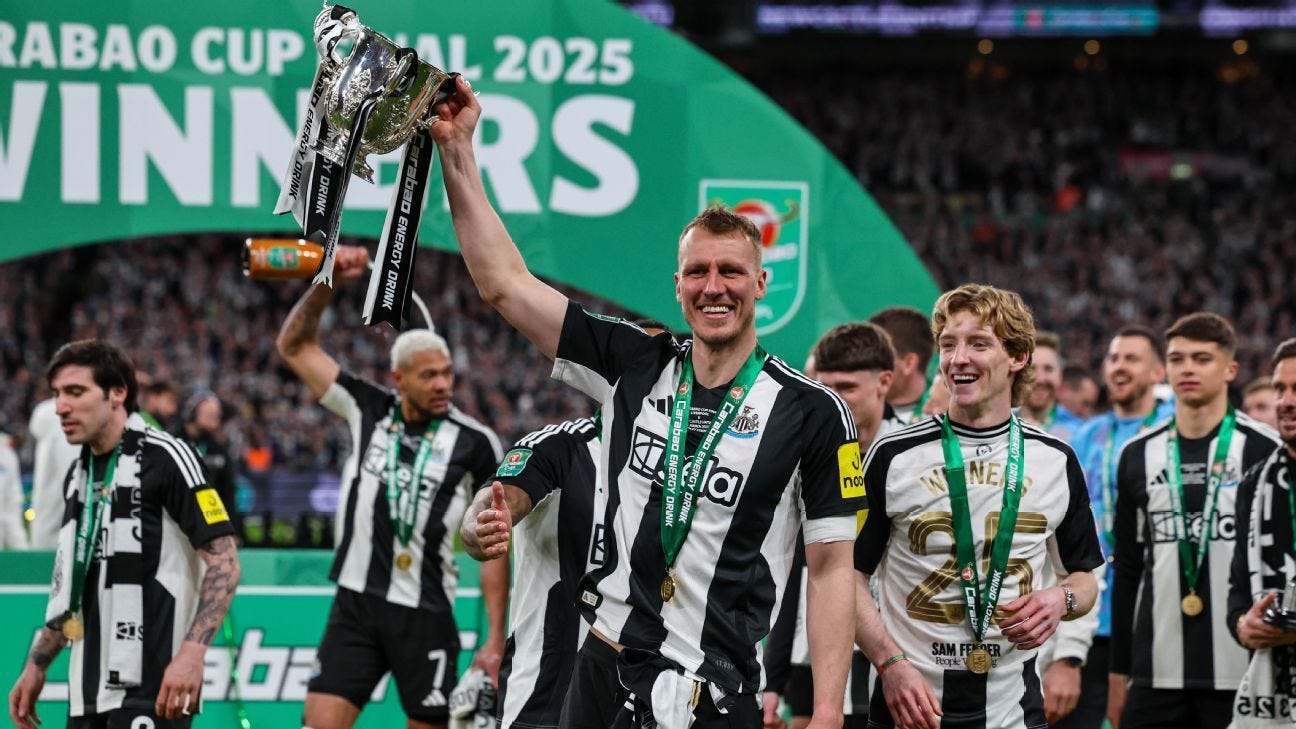
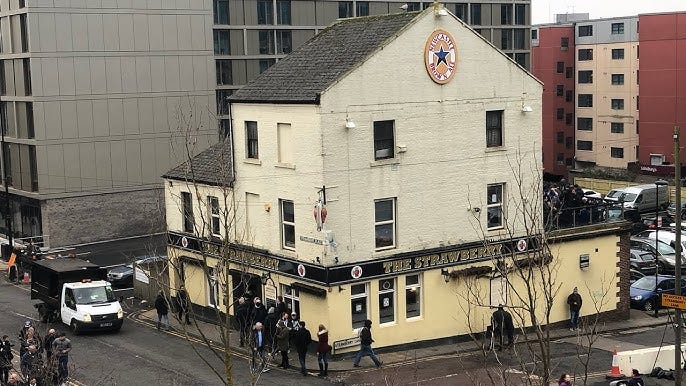
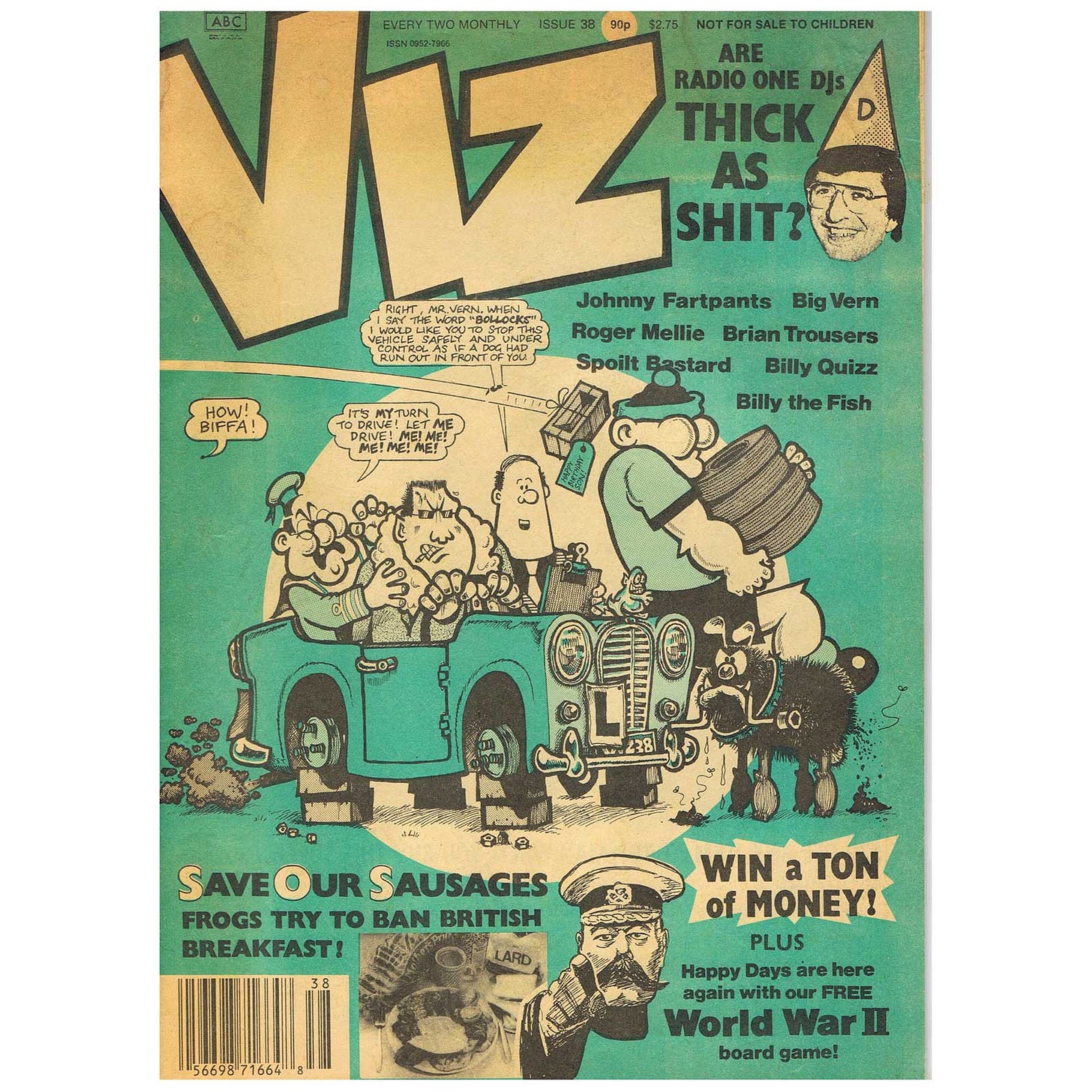
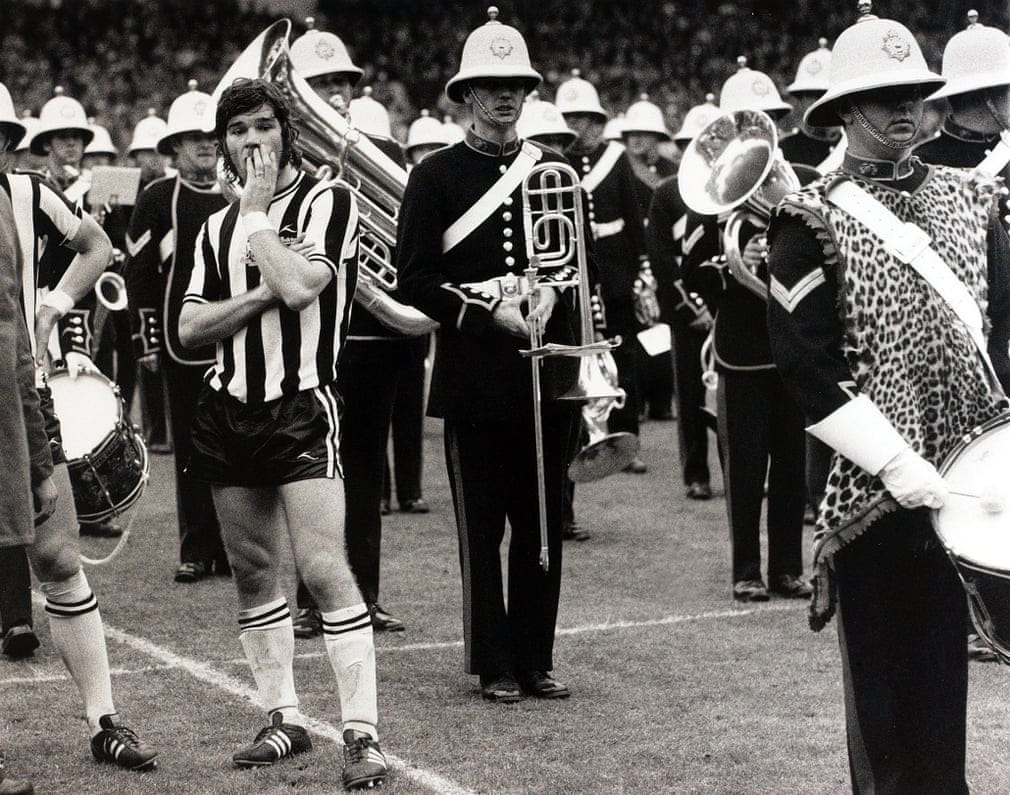
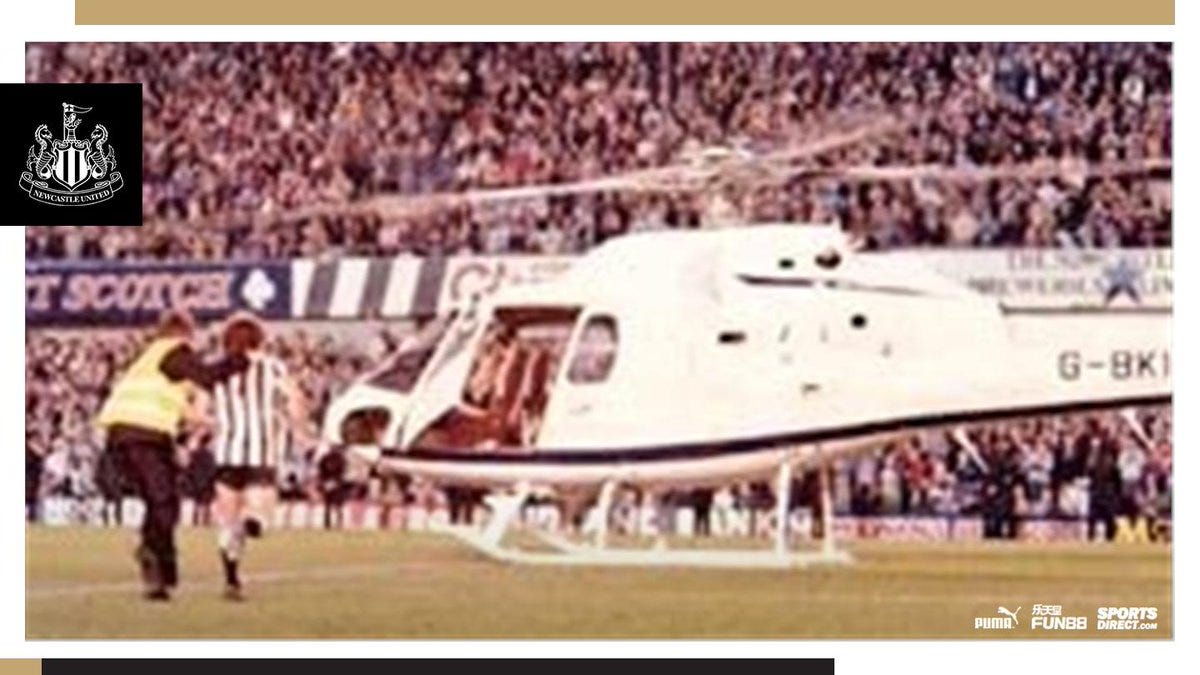
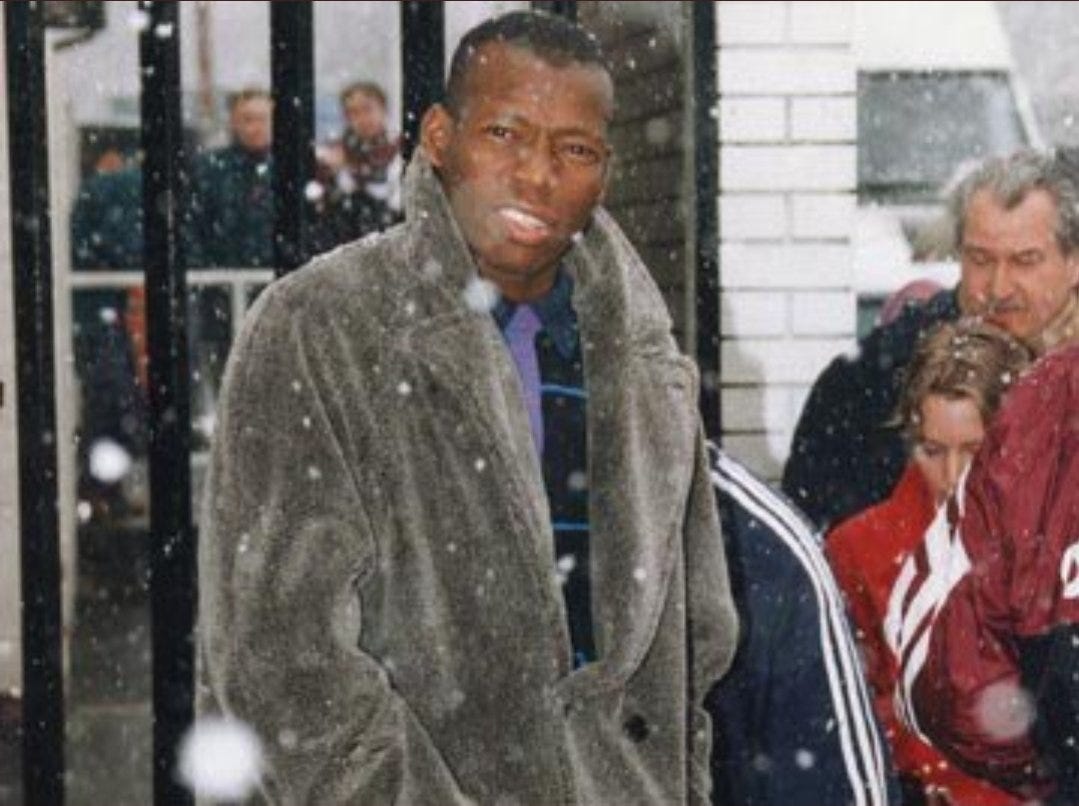
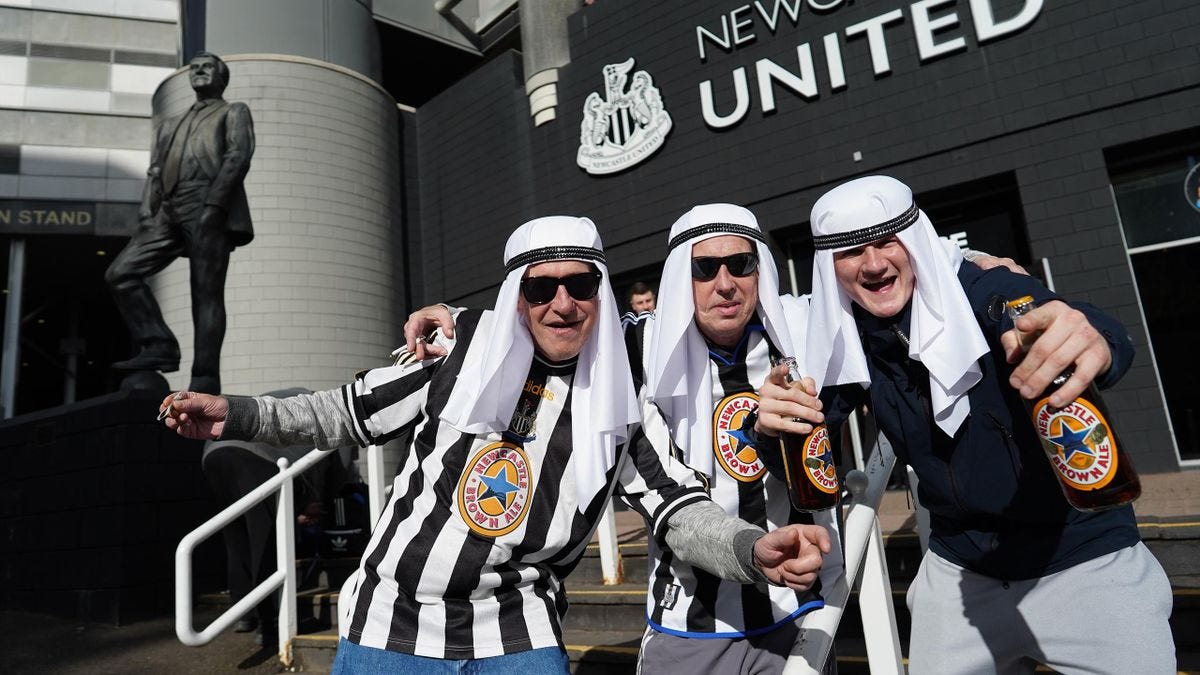
Thanks Rob, an easy one to write, so much material out there. Yes, I enjoyed the pics, a real treasure trove which is the Geordies all over really. I think they'll need a bigger name manager to take them forward but they've made a start now and with City and (more so) Liverpool rebuilding, there is a gap.
Great article Rich.
Images are brilliant too.
Pleased for Newcastle. Dismayed at Saudi money but to be fair they've made smart purchases.